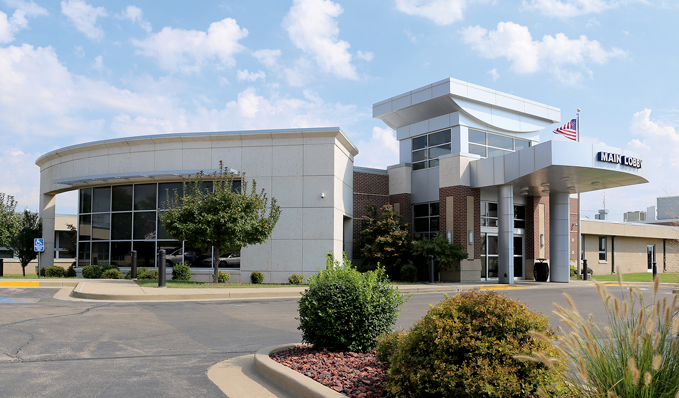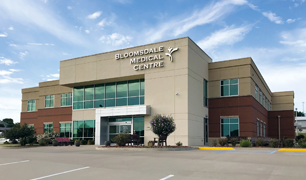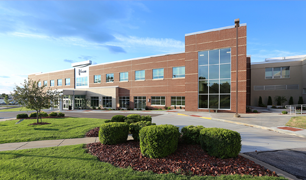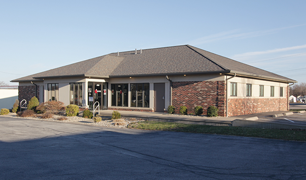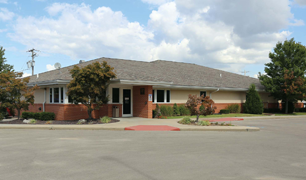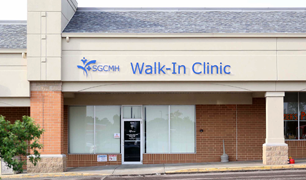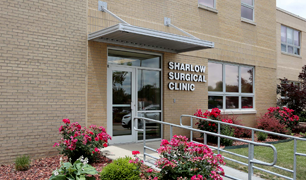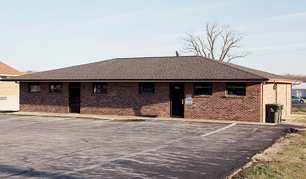Nowhere does Ste. Genevieve County Memorial Hospital’s commitment to technology show more than in our Diagnostic Imaging department, which provides a full range of diagnostic and treatment services, with some of the most up-to-date technology available.
Check out this video to learn more.
To provide faster diagnosis and better care, the hospital utilizes a Picture Archiving Communication System (PACS). The robust PACS computer network can store countless digital images and distribute them instantly through a powerful, secure web server.
To schedule any Diagnostic Imaging procedure, contact Community Wide Scheduling at 573-883-4488. Diagnostic Imaging services are available at two locations: Ste. Genevieve County Memorial Hospital and the Bloomsdale Medical Centre.
Types of Services
- CT Scan
- CT Heart/Calcium Score
- MRI
- 2D/3D Mammography
- Ultrasound
- TriSCAN
- Nuclear Medicine
- PET/CT
- Bone Density
- Lung Screening
- CT Cancer
Types of Procedures
- Head, Neck, Spine
- Chest, Abdominal, Pelvic
- Bone, Joint
- PICC Line, special procedures
- Upper and Lower GI Procedures
- C-Arm Imaging for surgical procedures
Hours of Operation
Ste. Genevieve County Memorial Hospital
Bloomsdale Medical Centre
We live in a radioactive world - humans always have. Radiation is part of our natural environment. We are exposed to radiation from materials in the earth itself, from naturally occurring radon in the air, from outer space, and from inside our own bodies (as a result of the food and water we consume). This radiation is measured in units called millirems (mrems).
International Standards allow exposure to as much as 5,000 mrems a year for those who work with and around radioactive material. See the samples below of typical effective radiation doses.
Chest................................................. 0.1 (10)
Cervical Spine.................................. 0.2 (20)
Thoracic Spine................................. 1.0 (100)
Lumbar Spine................................... 1.5 (150)
Pelvis................................................. 0.7 (70)
Abdomen or Hip............................... 0.6 (60)
Mammogram.................................... 0.36 (36)
DEXA (whole body).......................... 0.001 (0.1)
Skull.................................................. 0.1 (10)
Hand or Foot..................................... 0.005 (0.5)
Upper GI........................................... 6.0 (600)
Barium Enema.................................. 7.0 (700)
Abdomen (KUB) .............................. 0.7 (70)
CT Head............................................ 2.0 (200)
CT Chest........................................... 7.0 (700)
Whole-Body...................................... 10.0 (1,000)
Calcium Scoring............................... 2.0 (200)
Coronary CTA.................................. 20.0 (2,000)
Peripheral
Vascular Angioplasties.................... 5.0 (500)
Noncardiac Embolization................. 55.0 (5,500)
Vertebroplasty.................................. 16.0 (1,600)
Brain (perfusion) .............................. 6.9 (690)
Hepatobiliary (liver flow).................. 2.5 (250)
Bone.................................................. 6.3 (630)
Lung Perfusion................................. 2.5 (250)
Kidney (filtration rate)....................... 2.2 (220)
Tumor/Infection................................ 2.5 (250)
Heart (stress test)............................. 9.4 (940)
Various PET Studies ........................ 14.0 (1,400)


